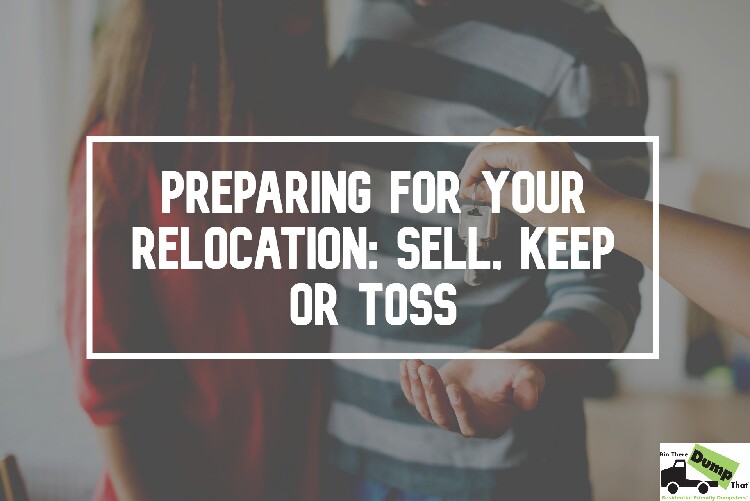
A new job. Returning home to be near family. There are many reasons people choose or are required to relocate. No matter the reason, relocations across town or across country can be stressful and challenging.
One way to make the process easier is to lighten your load by selling, donating or throwing away as much as you can. Sure, there are some things you need to keep: important documents, family heirlooms, children... But you’ll also have to make some tough choices.
Here’s some advice for deciding what to keep, what to sell, and what to throw away (or donate) before you relocate.

Over the years, families collect lots of stuff. Maybe they were gifts or, inspired by any number of cooking shows, a budding chef picked up a variety of kitchen gadgets and small appliances that barely made it out of the package or box. If they’re still in good shape they might just help you defray the cost of the move.
For many, exercise equipment falls into the same category. Dreams of rock hard abs and tight glutes have given way to a more Rubenesque physique. Remove the hanging clothes, wipe off the dust, and put your exercise equipment on Craigslist.
As a general rule, if it hasn’t been used in three months or more and it’s still in good shape, someone, somewhere will want it.
Selling these items before you relocate is essential because you wouldn't want to carry the cost of moving it only for it to never be used again. Think ahead of your relocation, and snag a couple bucks while you're at it.
No matter how much you might want to, there are some items you really shouldn’t part with. There are any number of legal documents it’s best to keep close by. The Internal Revenue Service recommends keeping tax documents for seven years. It’s also wise to retain warranty and repair documents (appliances, automobile, etc.) If you’re leaving them behind, leave a folder for the new residents. Many warranties are transferable.
Not everything you should keep is a legal or financial necessity. Every woman is encouraged to save space in her closet for that little black dress. Things that never go out of style — a classic suit, that vintage Hermès bag — should find a spot in the new closet.
Also, safely pack those unique keepsakes, family heirlooms, photos, and other mementos that simply cannot be recaptured. They might take up space, but memories can’t be replaced.

The difference between tossing an item and donating it: the condition it’s in.
Even when the economy is going strong, there will always be people who need help. If you have some old clothes that still have some wear in them, someone will find a use for them. If they’ve seen better days, dump them.
Are you an early adopter, the first in line to buy the latest tech gadgets? Even if you skip a generation or two, those old phones, computers, and music players might be worth donating. Old phones can be given to those unable to afford the latest gadgets. If they no longer work, toss them (after deleting personal information). Some electronics shouldn’t simply be thrown in the trash. Check with your city government about how to properly dispose of electronics.
Toys and books in good shape are worth donating. They can continue to provide years of enjoyment for a new generation of children. Books with missing pages and broken toys are best gotten rid of. When it comes to old furniture, you can donate or toss that depending on its function and wear.
It should go without saying, but expired foods and medicines should be disposed of properly.
Relocations are traumatic, made worse having to pack and transfer your home. It’s expensive, time consuming, and stressful. The fewer items you take with you, the less expensive, time consuming and stressful it will be.
Finding a balance between what to take and what to leave behind can make the process easier. If it’s irreplaceable, take it with you. If it’s in good shape and of use to someone, sell it or donate it to a worthy cause.
Everything else belongs in a Bin There Dump That dumpster bin.
Friendly, professional customer service, plus fair pricing, equals value.